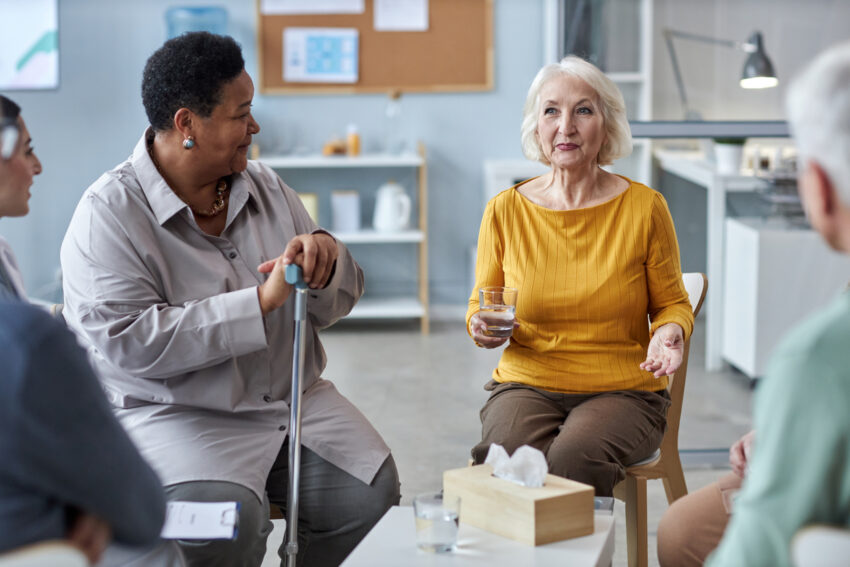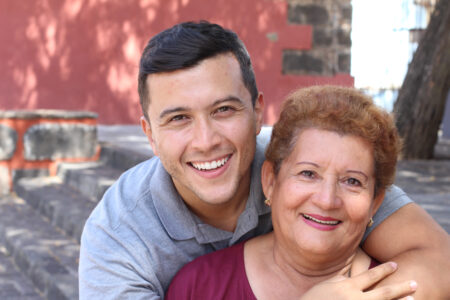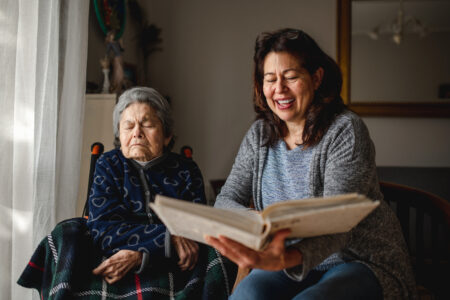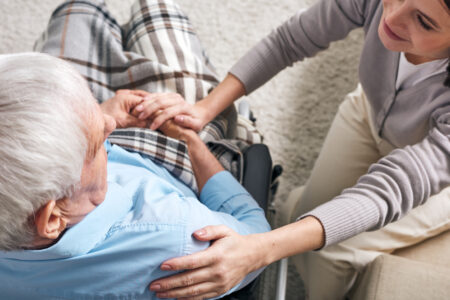
Share On Social!
We know that Latinos are disproportionally impacted by Alzheimer’s, dementia, and other health conditions like Parkinson’s disease.
That is why it’s important to have support and resources for those who are impacted, as well as their families and caregivers.
Let’s explore various support groups from the Glenn Biggs Institute for Alzheimer’s and Neurodegenerative Diseases at UT Health San Antonio!
Support for Those with Lewy Body Dementia
The Biggs Institute hosts an in-person support group, Living Together with Lewy: Support group for Individuals Living with Lewy Body Dementia and their Care Partners.
Lewy Body Dementia is the second-most common form of dementia, behind Alzheimer’s. It results in irreversible cognitive decline and movement problems like Parkinson’s Disease.
“Lewy bodies are an alpha-synuclein protein that develops in areas of the brain involved in thinking and motor control,” according to dementia.org. “When they build up, they can have a negative impact on the brain, affecting memory, thinking skills, movement, mood, and behavior.”
Participants are encouraged to join the in-person support group for encouraging and enlightening discussions with others who are living with and caring for Lewy Body Dementia.
This support group takes place every first Thursday of the month from 1-2:30 p.m. at the Medical Arts and Research Center (MARC Building) at UT Health San Antonio at 8300 Floyd Curl Drive on the 1st Floor conference room.
For more information and to register, contact Melissa Flores or Angela Torres at 210-450-8506 or BiggsSupport@uthscsa.edu.
Support for Those with Parkinson’s Disease
The Biggs Institute also hosts Stronger Together: Support Group for Person’s with Parkinson’s Disease.
This support group is open to all individuals who have been diagnosed and are living with Parkinson’s Disease.
Recent research has found that Parkinson’s disease may occur in higher rates among Latinos.
“It is estimated that approximately 50% to 80% of those with Parkinson’s disease will eventually develop at least mild dementia, while up to 20% will develop full-blown dementia,” according to dementia.org.
This support group takes place every second Thursday of the month 10-11:30 a.m. at the MARC Building at UT Health San Antonio on the 1st Floor conference room.
For more information and how to register, contact Angela Quiroz- Saenz at 210-450-9947 or quirozsaenz@uthscsa.edu.
Support for Those Caring for their Parents
The School of Nursing Caring for the Caregiver Program, in collaboration with the Biggs Institute, also host an online support group, Caring for a Parent with Dementia.

About 13% of Latinos who are 65 or older have Alzheimer’s or another form of dementia. 20% of Latino adults providing unpaid care to an adult with health issues or a disability.
Therefore, the need for caregiver support is crucial.
For additional information and to RSVP, contact Melissa Flores at 210-450-8506 or FloresM16@uthscsa.edu. Or, contact Angela Torres at TorresA11@uthscsa.edu.
Check out the Biggs Institute’s events calendar to find upcoming support group dates.
All of the support groups are free to attend, with registration required.
All support groups are facilitated by certified health care professionals and provide a supportive and informative environment for discussing these various topics.
Clinical Trial Participation
Looking for other ways to help your loved ones with dementia?
Consider participating in a clinical trial and help us fight for our familia.
Clinical trials are studies that help researchers learn more to help slow, manage, and treat Alzheimer’s and dementia for current and future family members.
But without Latino volunteers for clinical trials, the benefits may miss this group.
Visit our clinical trials page to find a clinical trial, read about hero volunteers, and more!
“Latinos in clinical trials are not only helping themselves, but they’re also building a future with better treatments that can help their families in the future,” said Dr. Amelie Ramirez, director of the Institute for Health Promotion Research and Salud America! at UT Health San Antonio, who is creating new ways to urge Latinos to volunteer for clinical trials thanks to a grant from Genentech, a member of the Roche Group.
By The Numbers
142
Percent
Expected rise in Latino cancer cases in coming years



